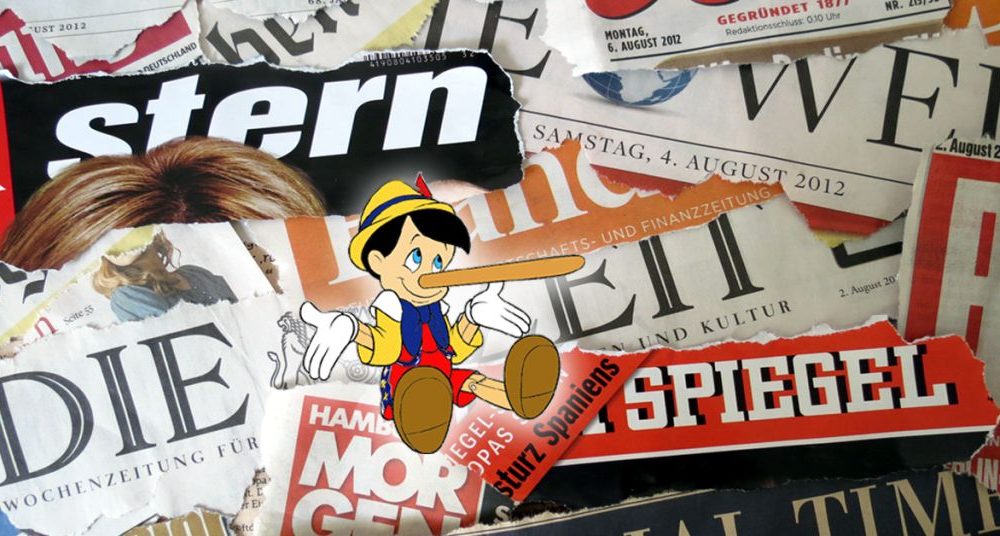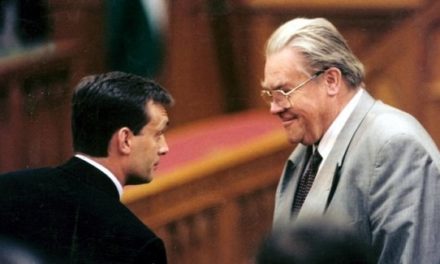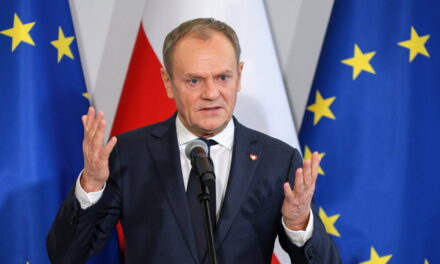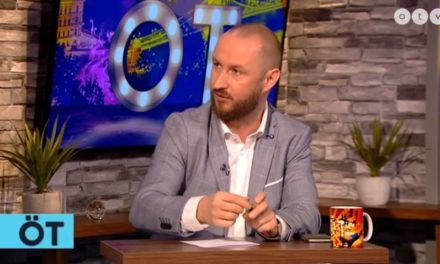Freedom of opinion and press is not all right in Germany. Peter Hahne says that the ruling traffic light coalition specifically hinders the operation of new radio stations expressing a different opinion. Among other things, the former presenter of the ZDF TV channel tells amazing things about the Ukrainian oligarchs living in Berlin and the gender ideology in the interview prepared by Balázs Náray, which was broadcast on Kossuth Rádió's Sunday newspaper program.
I often travel by subway, bus, and train, which gives you access to a lot of information. Especially about topics that are very hot today, such as the coronavirus or the war in Ukraine. However, as far as the media is concerned, recently I am very happy that there is a completely new radio station, which has been operating for a short time, called Kontrafunk. I often follow their broadcast because I receive very reliable information, which other mediums ignore, explained Peter Hahne.
Where is diversity, freedom of opinion?
Of course, I still listen to the stations I worked for, such as ZDF, where I worked for 30 years, or ARD, where I worked for 13 years. At the same time, I am often disappointed by what they broadcast or say. And I am also disappointed that this shows that everything is not right with freedom of opinion and the press, he added.
He was therefore pleased to receive media such as Kontrafunk, Tichys Einblick , Reitschuster.de , and Henryk M. Broder's publicists who expressed alternative opinions.
"Therefore, there are also new information opportunities. In addition, I believe that as a journalist one should use all available media. You cannot exclude certain media from your information sources in advance. So you need to look for alternative sources and perhaps compare them to the public service media in terms of content. This is also part of freedom of opinion and press. You know, the new government in Berlin, the traffic light coalition, included diversity in the chapter dealing with media and culture in the coalition contract; "diversity" - that's how the miracle phrase sounds," continued Hahne. "In light of this, I especially do not understand how they can hinder the operation of certain media; for example the one mentioned
Kontrafunk's YouTube channel was banned just a few days ago, but Reitschuster's bank account was also closed. This is an interference with freedom of expression”
Peter Hahne emphasized.
This “contradicts what the government in Berlin dictates. Because if you are really serious about diversity, then this government should support alternative media. But because he doesn't, it's a sign that our freedom of expression is under threat. And it shows something about the state of the German public in terms of freedom of opinion, speech and the press. Perhaps we can say that freedom of opinion exists everywhere, but the problems start when you want to say it," said Hahne, who is also known as a television presenter and Protestant theologian (he graduated as an evangelical pastor).
They don't trust the media
He started working as a journalist fifty years ago, "back in Saarbrücken, at Europawelle, which was also very quiet in Hungary at the time. Those were the days when people still trusted the media a lot; on radio and television. Today, every survey shows - be it Allensbach or the INSA research institute, but also left-wing pollsters - that
Two-thirds of people in Germany do not think they can express their opinions freely,
and even more, three quarters of the population declare that they no longer trust the media, nor politics, parties, nor even the church. So there is no trust in social institutions. People are afraid to express their opinions, especially regarding topics such as migration, integration, and this terrible gender ideology, as well as the epidemic measures in the last two years," warned Hahne, who has recently been mocked by the mainstream German left-liberal media. and he was in the crossfire of far-right attacks.
No-go zones, no-go topics
In Germany, there are no-go zones in big cities, where it is best not to enter, because it is dangerous. As a model for this, there are now no-go topics, i.e. taboos, in which it is best not to get involved, explained Hahne.
"For me, after 50 years of working as a journalist, this is the biggest disaster. And the worst thing about it is that it seems that the politicians and his former colleagues in the media "don't care". They are not trying to regain the trust of people and society.
If I hear that no one trusts me anymore, I will do everything in order to regain this trust, said the well-known television personality.
In response to the question of how the German media portrays the war in Ukraine, Hahne said: "If you take a look at the programs of the public service media or the so-called mainstream newspapers, you will find that there are hardly any different opinions in them, only one type of opinion." He explained about the conflict:
"For me, it is clear and unambiguous that Russia is the aggressor. But let me be free to ask questions! Ukraine as a state should not be immediately treated as a saint, as if there were no oligarchs there, there would be no corruption.
In Berlin, when I walk down the street, I see an unimaginable number of luxury cars: Maseratis, Ferraris, Porsches, BMWs with Ukrainian license plates. At this point, I have to ask: what kind of people are these? Why isn't their wealth taken away from them to support the poor population of Ukraine? And I also ask: where are the billions paid from Ukraine to Germany? Who actually gets the money?”
- asked the journalist.
I'm simply asking questions, such as why peace talks don't finally take place someday? Why doesn't Mr. Zelensky straighten up and say, "I want to talk to Putin in the Kremlin because I want peace for my country," he expressed his reservations.
The price of firefighting
"Regarding what you brought up regarding energy prices, inflation in Germany, I had a saying two years ago regarding epidemic policy, which was: putting out a fire cannot cause more damage than the fire itself," Hahne replied in response to that question , how the war in Ukraine affects the economy, society and gas transport and energy supply. "In other words, the measures we take to prevent a disaster, an epidemic, or a virus cannot have worse consequences than the effects of the event to be prevented. So firefighting cannot be more expensive than the fire itself," he underlined.
"In the meantime, however, we are experiencing the fact that the sanctions against Russia hardly cause any damage to the Russians, while we suffer the damage in Germany. Just a few days ago, the state government of Baden-Württemberg announced that, according to their expectations, the price of gas will rise five times compared to the current level. This is an unimaginable thing," he answered the journalist's question.
If Germany wakes up
When asked if he does not think that there will come a moment when the citizens, the Germans, will really say that enough is enough, he stated that he no longer has any illusions that the Germans will realize the situation and wake up, "even not even on issues like inflation, energy prices, or shutting down nuclear power plants while restarting coal power plants," said Hahne, who put it this way: "In Germany, there is hardly any resistance." During his conversations with leading German politicians, he still encounters opinions similar to those expressed by a former German federal president: "We still live too well."
Nevertheless, it seems as if the population is slowly waking up: it's about the bottom line, inflation is eating everything up.
They are slowly realizing that everything that is going on here is an ideology.”
If the journalists also realize where this current path leads, their attitude and opinion will also change. People are slowly realizing how expensive this solidarity with Ukraine is, he added.
Handke, who also takes a stand for traditional values as an evangelical, points out:
"My colleagues are starting to realize where the gender madness is leading. They see that the child is completely unsettled in kindergarten, they heard at school,
that they can change their gender. This raises questions even among the most left-wing journalists.”
Today, through their own personal lives, many colleagues perceive where this unfortunate political correctness is leading, that this direction is by no means positive, adds Hahne.
Source: hirado.hu
Photo: montage / PestiSrácok













